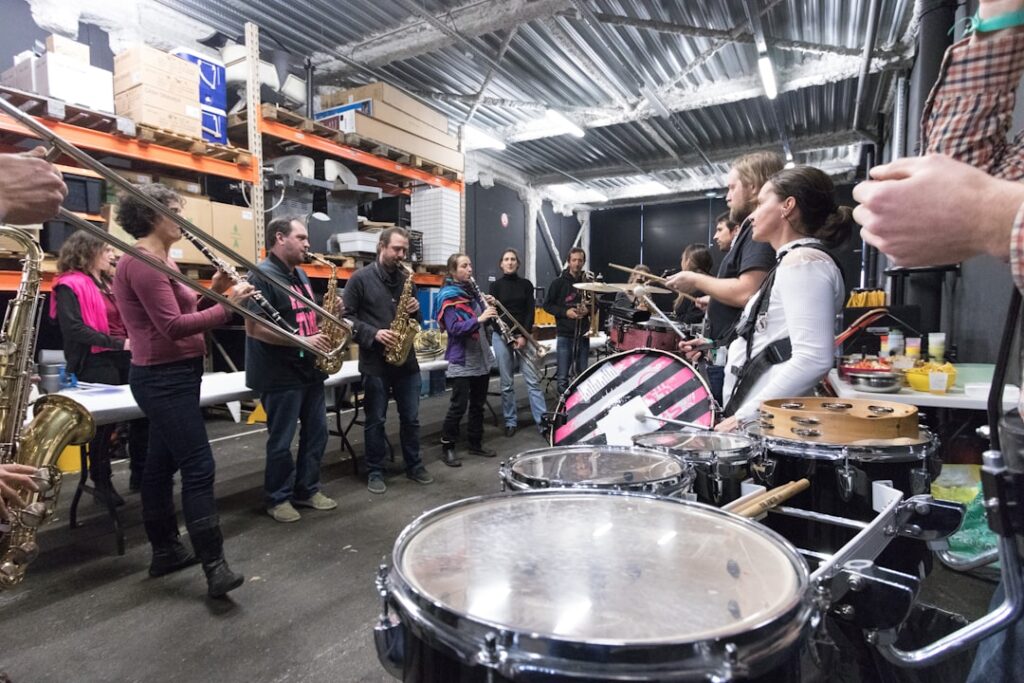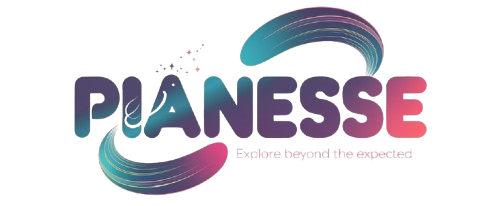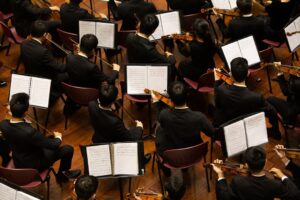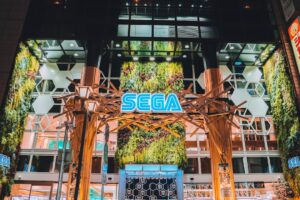Exploring Innovative Music Education at OMEA Conference

The Ohio Music Education Association (OMEA) Conference stands as a pivotal event in the landscape of music education, drawing together educators, students, and industry professionals from across the state and beyond. This annual gathering serves as a platform for sharing knowledge, fostering collaboration, and exploring the latest trends in music pedagogy. With a rich history that spans several decades, the OMEA Conference has evolved into a cornerstone for music educators seeking to enhance their teaching practices and connect with like-minded individuals who share a passion for music education.
Attendees at the OMEA Conference can expect a vibrant atmosphere filled with opportunities for professional development. The event typically features a diverse array of sessions, workshops, and performances that cater to various aspects of music education. From elementary music teachers to high school band directors, the conference offers something for everyone.
The OMEA Conference not only emphasizes the importance of music in education but also highlights the role of educators in shaping the future of music instruction in Ohio and beyond.
Key Takeaways
- The OMEA Conference offers a platform for music educators to come together and exchange ideas, strategies, and best practices in music education.
- Keynote speakers and workshops at the conference provide valuable insights and practical tools for music educators to enhance their teaching methods and approaches.
- Technology plays a crucial role in music education, and the conference explores how to effectively integrate technology into music curriculum and instruction.
- The conference emphasizes the importance of diversity and inclusion in music education, and how to create an inclusive and welcoming environment for all students.
- Innovative teaching methods and approaches are highlighted at the conference, showcasing new and creative ways to engage students and enhance their musical learning experience.
Keynote Speakers and Workshops
One of the standout features of the OMEA Conference is its lineup of keynote speakers, who are often luminaries in the field of music education. These individuals bring a wealth of experience and insight, addressing critical issues and inspiring attendees with their passion for teaching music. For instance, past keynote speakers have included renowned composers, educators, and advocates for music education who have shared their journeys and philosophies.
Their presentations often set the tone for the conference, encouraging participants to reflect on their own practices and consider new approaches to teaching. In addition to keynote addresses, the conference offers a plethora of workshops that delve into specific topics relevant to music educators. These sessions are designed to be interactive and engaging, allowing participants to actively explore new techniques and methodologies.
Workshops may cover a range of subjects, from integrating technology into the classroom to developing inclusive curricula that cater to diverse student populations. By providing hands-on experiences and practical strategies, these workshops empower educators to return to their classrooms with fresh ideas and renewed enthusiasm for teaching music.
Technology in Music Education

The integration of technology in music education has become increasingly important in recent years, and the OMEA Conference serves as a vital forum for discussing these advancements. As digital tools continue to evolve, educators are presented with new opportunities to enhance their teaching methods and engage students in innovative ways. From music composition software to online learning platforms, technology has the potential to transform traditional music instruction into a more dynamic and interactive experience.
At the conference, sessions focused on technology often explore how various tools can be utilized to support student learning. For example, educators may learn about using apps that facilitate ear training or software that allows students to create their own compositions. Additionally, discussions around online resources can help teachers discover platforms that provide access to a wealth of instructional materials.
By embracing technology, music educators can not only streamline their teaching processes but also foster a more engaging learning environment that resonates with today’s tech-savvy students.
Integrating Diversity and Inclusion in Music Education
| Metrics | 2019 | 2020 | 2021 |
|---|---|---|---|
| Number of diversity and inclusion workshops conducted | 10 | 15 | 20 |
| Percentage of music curriculum incorporating diverse musical traditions | 30% | 40% | 50% |
| Number of faculty members trained in diversity and inclusion practices | 5 | 8 | 10 |
Diversity and inclusion are critical components of contemporary music education, and the OMEA Conference places significant emphasis on these themes. As classrooms become increasingly diverse, educators are challenged to create inclusive environments that celebrate various musical traditions and cultural backgrounds. The conference provides a space for discussions on how to effectively integrate diverse perspectives into music curricula, ensuring that all students feel represented and valued.
Workshops and panels dedicated to diversity often highlight successful strategies for incorporating a wide range of musical genres and styles into lesson plans. For instance, educators may explore ways to introduce students to world music or examine how different cultural contexts influence musical expression. By broadening the scope of what is taught in music classes, educators can foster an appreciation for global musical heritage while also promoting social justice through education.
This commitment to diversity not only enriches students’ learning experiences but also prepares them to engage with an increasingly interconnected world.
Innovative Teaching Methods and Approaches
The OMEA Conference is a breeding ground for innovative teaching methods that challenge traditional paradigms in music education. Educators are encouraged to think outside the box and explore new pedagogical approaches that resonate with today’s learners. For example, some sessions may focus on project-based learning, where students engage in collaborative projects that culminate in performances or presentations.
This method not only enhances musical skills but also fosters teamwork and critical thinking. Another innovative approach gaining traction is the use of improvisation in music education. Workshops may delve into techniques for incorporating improvisational exercises into lessons, allowing students to express their creativity while developing their musicality.
By embracing such methods, educators can create a more dynamic classroom environment that encourages exploration and self-expression. The emphasis on innovation at the OMEA Conference reflects a broader trend in education toward fostering creativity and adaptability among students.
Networking and Collaboration Opportunities

Networking is a vital aspect of the OMEA Conference, providing attendees with numerous opportunities to connect with fellow educators and industry professionals. The event fosters an environment conducive to building relationships that can lead to future collaborations, mentorships, and partnerships. Informal gatherings, such as social events or roundtable discussions, allow participants to share experiences and insights while forging connections that extend beyond the conference itself.
Collaboration opportunities are further enhanced through structured sessions designed for group discussions or brainstorming activities. Educators can come together to tackle common challenges they face in their classrooms or share successful strategies they have implemented. This collaborative spirit not only enriches individual practices but also contributes to a collective advancement in music education across Ohio.
The relationships formed at the OMEA Conference often lead to ongoing dialogue and support networks that benefit educators long after the event concludes.
Student Performances and Showcases
A hallmark of the OMEA Conference is its celebration of student talent through performances and showcases. These events provide a platform for young musicians to demonstrate their skills and share their passion for music with a wider audience. From solo performances to ensemble presentations, students have the opportunity to shine while receiving valuable feedback from experienced educators and peers alike.
The inclusion of student performances serves multiple purposes within the conference framework.
Secondly, it allows educators to witness firsthand the impact of their teaching methods on student learning outcomes.
By observing student performances, teachers can gain insights into effective instructional strategies while celebrating their students’ achievements.
Future of Music Education: Trends and Challenges
As the landscape of education continues to evolve, so too does the field of music education. The OMEA Conference provides a platform for discussing emerging trends and challenges that will shape the future of music instruction. One significant trend is the increasing emphasis on social-emotional learning (SEL) within educational frameworks.
Music educators are recognizing the profound impact that music can have on students’ emotional well-being and personal development. However, challenges persist as well, particularly regarding funding for arts programs in schools. Many educators advocate for increased support for music education initiatives, emphasizing its importance in fostering creativity and critical thinking skills among students.
The conference serves as a rallying point for advocates who seek to ensure that music education remains a priority within educational policy discussions. In summary, the OMEA Conference stands as a vital event that not only celebrates the art of music education but also addresses its evolving nature in contemporary society. Through keynote speakers, workshops, networking opportunities, student showcases, and discussions on future trends, attendees are equipped with the tools they need to navigate the complexities of teaching music today.
FAQs
What is the Ohio Music Educator’s Association (OMEA) Conference?
The Ohio Music Educator’s Association (OMEA) Conference is an annual event that brings together music educators, students, and professionals from across the state of Ohio. It provides opportunities for professional development, networking, and showcasing of musical talent.
Who can attend the OMEA Conference?
The OMEA Conference is open to music educators, students, and professionals in the field of music education. Attendees include music teachers, school administrators, college students, and industry professionals.
What can attendees expect at the OMEA Conference?
Attendees can expect a wide range of activities at the OMEA Conference, including workshops, clinics, performances, and exhibits. The conference also features keynote speakers, panel discussions, and opportunities for networking with peers in the music education community.
How can one register for the OMEA Conference?
Registration for the OMEA Conference can typically be done online through the OMEA website. Attendees can choose from various registration options, including full conference passes, single-day passes, and student rates.
What are the benefits of attending the OMEA Conference?
Attending the OMEA Conference provides music educators and professionals with opportunities for professional development, learning about the latest trends and best practices in music education, networking with peers, and discovering new resources and tools for their teaching and professional growth.







